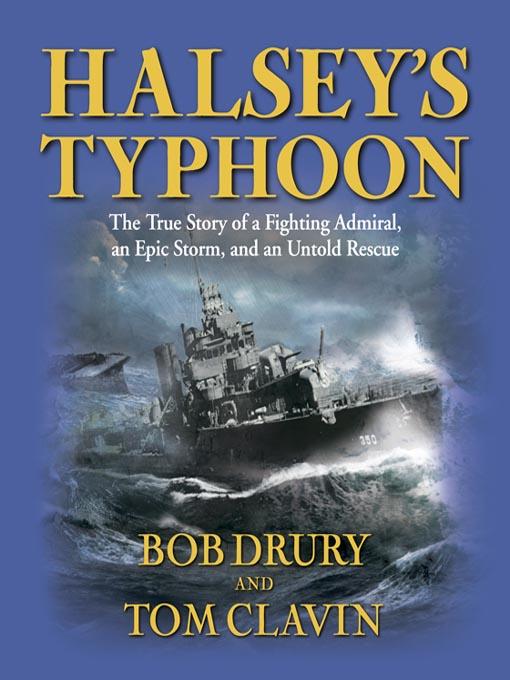
Halsey's Typhoon
The True Story of a Fighting Admiral, an Epic Storm, and an Untold Rescue
کتاب های مرتبط
- اطلاعات
- نقد و بررسی
- دیدگاه کاربران
نقد و بررسی

Typhoon Cobra devastated Admiral William "Bull" Halsey's Pacific Fleet in December 1944, sinking ships, smashing airplanes, and throwing sailors to the sharks. Presenting the story as if it were a TV documentary, Eric Conger uses his voice as a portal to allow the story to tell itself. The narration succeeds at becoming invisible, adding no unnecessary drama to the already compelling tale. Conger adopts a professorial style in passages explaining the physics of tropical storm development and relaxes into informality for first-person accounts retrieved from interviews and historical records. The book's only dry moments come from the text's occasional forays into assessing blame for the disaster, and these are blessedly few. R.L.L. (c) AudioFile 2007, Portland, Maine

October 9, 2006
At the height of the Second World War in 1944, the U.S. Pacific Fleet was struck by a typhoon that sank three destroyers and drowned 800 sailors. Drury (The Rescue Season
) and Clavin (Dark Noon: The Final Voyage of the Fishing Boat Pelican
) draw on proceedings of a navy board of inquiry and eyewitness recollections to recreate the catastrophe. On the one hand, this is an absorbing if disjointed maritime disaster saga in which shrieking winds and monstrous waves batter warships to pieces. It's also a study in judgment under pressure, as hard-charging Adm. William "Bull" Halsey (motto: "Kill Japs") keeps his fleet positioned in the storm's path because of faulty weather reports, accusations that he improperly left his station during the earlier Battle of Leyte Gulf and general overaggressiveness. Closer to the waterline, the authors contrast the fecklessness of Capt. James Marks of the U.S.S. Hull
, which sank, to the steadiness of Capt. Henry Plage of the U.S.S. Tabberer
, which braved mountainous seas to rescue survivors. The trumped-up leadership parable is perhaps unfair to Halsey and Marks. Still, the authors make their account a vivid tale of tragedy and gallantry at sea. Photos.

























دیدگاه کاربران